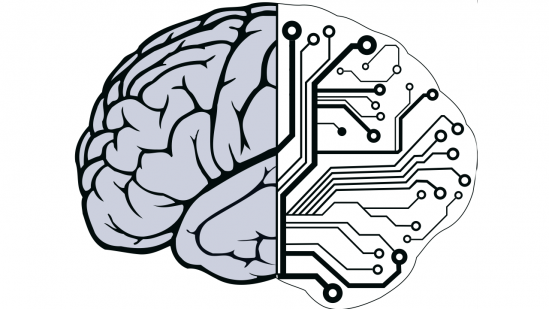This is the first entry from my journal documenting recent explorations of a new world known as Cytopia. You can find out more at http://cytopia.xyz
“A new frontier that was not merely space, but more profoundly the relationship between ‘inner space’ to ‘outer space’ — a bridge…between mind and matter.”
D.S. Halacy

Today Gem divulged more details about this Cytopia.
Firstly the name. It refers to her interpretation of a place where humans have willingly assimilated with calm technology, which “Extends their natural human tendencies”, thus they have become cyborgs who are striving for a better world. Cyborgs towards utopia. Or Cytopia.
Initially this left me picturing marching lines of androids and Terminators, before I thought back to more metaphorical notions like Harraway’s cyborg. Though I see how in this reality some might argue we are already cyborgs, I find it difficult to understand the circumstances in which we would gladly embody components from our smartphones or other computing devices given the context in which we exist.
Gem explained the circumstances in Cytopia are quite different. The key, according to her at least, was that in the late 1990s at the start of the first internet boom, the visionary, optimistic yet critical thinkers like Goldhaber, Berners-Lee and Rheingold were listened to. Barlow’s imperfect Declaration of Independence of Cyberspace became a rallying cry. The ideas that were pouring out during that period did not fall on deaf ears, rather they fell on attentive eyes and sparked busy fingers to instigate widespread debate in society about what kind of direction this incredibly powerful new network should take. There are three contrasts in particular that emerged out of this discussion:
1. Technology that helps us to be more human, rather than more efficient.
In Cytopia, the prevailing trend on the internet and the technology conceived around it, are services designed to help maximise natural human traits. Technology is seen as a natural extension to our capabilities rather than a slave, or increasingly a master. This means that while some of the developments remain the same, online behaviours and many of the digital entities that exist in Cytopia are quite different to those we know in this reality.
2. Technology driven by creative, not market forces.
Economists realised fairly early on that with an open internet and an abundance of information, the only scarcity left was human attention. In Cytopia this led leading economists to abandon old-models with regards to online activity and to create models that could be applied to new phenomena. The link between the creation of content and market forces became far less abstract and indeed a new form of currency arose which reflected the paradigm shift that had occurred.
3. Technology that empowers optimistic thoughts, not hopeless anxiety.
In our world, new developments around technology consistently arouse concerns, fears and dystopian visions. This has little to do with the technology itself and much more to do with our usage of it, as well as an underlying mistrust of the opaque monopolistic entities that own most of the key services we use, and in many respects work for. In Cytopia, since developments around the internet have always been faithful to an underlying humanistic spirit, issues like transparency, ownership and choice are handled in a very different manner to what we are accustomed to. Indeed the humans of cytopia are so optimistic about technology that they are happy to truly embody some of the most recent developments, becoming fully-fledged cybernetic organisms or cyborgs.
The result is a world, which while resembling our own, is quite different.
Where the developments and usage of technology have taken new forms and character.